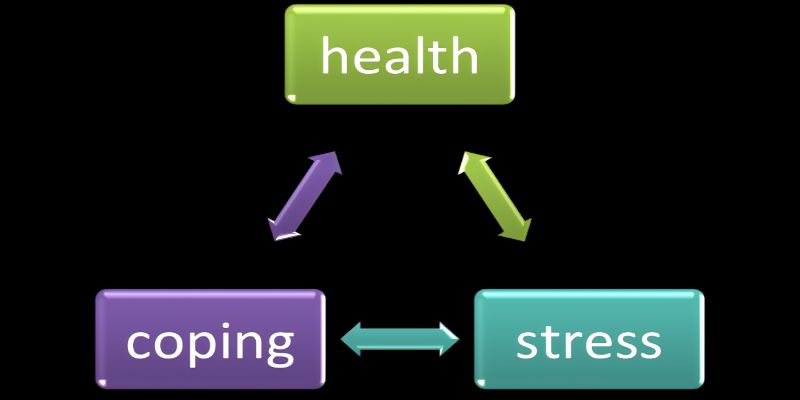Table of Contents
ToggleSuicide is one of the most prominent leading causes of death in young people.
Worldwide, 800,000 people die from suicide every year. This is an enormous number of deaths, and it’s twice as much as the homicides.
Suicide rates are typically higher for older adults. The risk of committing suicide is twice as high for men compared to women.
It’s safe to say that suicide is a global problem that we must try to prevent at all costs. Thus, we should aim to educate people on this topic.
How to cope with suicidal thoughts?

Although suicidal thoughts are terrible and can have a huge negative impact on our mental health, it is possible to learn how to cope with these thoughts. Not to mention that bad experiences will usually pass, and life often becomes more positive again.
The following ways can help you cope with suicidal thoughts to keep your life manageable and endurable:
Remove yourself from danger.
If any particular situations trigger suicidal thoughts like for example drinking a lot of alcohol or drugs, then refrain from getting in such situations.
If you do decide to go out with your friends and are suffering from suicidal thoughts, then don’t drink alcohol and don’t take drugs. At home, remove all alcohol and drugs as well to resist the temptation of using substances.
Resisting the temptation is a lot easier if the source isn’t available in the first place.
Talk with close ones and with professional help.

Talking with people close to you and with professional help can at the very least aid you to feel understood. Not to mention that it feels good to get the necessary attention and the ability to vent those negative thoughts and feelings.
Even though you might feel like withdrawing and isolating yourself, you must keep talking with friends, family, and professional therapists. Not to mention that they might provide valuable information about what you could do differently to recover and improve.
Create a safety plan.
Creating a safety plan is one of the best things you can do when having suicidal thoughts.
A safety plan includes a set of steps that you can follow when having suicidal thoughts or a crisis. It often involves the contact numbers of your friends, family, general practitioner, and therapist.
These people can then help you during your times of need when you need it the most. A good safety plan can save your life on multiple occasions.
Keep and practice a schedule.

People require a schedule of habits and routines to stay and feel healthy. Without it, we feel lost and eventually get depressed.
Keeping a schedule of activities is especially important for people with suicidal thoughts, as they are regularly already depressed and their schedule is typically already disturbed.
Try to create a schedule of healthy routines such as exercising, practicing a hobby, working, and filling your day with general productive activities. This will help you through the hard days by giving you a purpose to live, even when you don’t feel like it.
Get out of your house into the world.
Isolating yourself might be what you desire when having suicidal thoughts and feeling bad. But even though it might feel good, it isn’t going to help you in the end.
Getting out of the house and socializing with friends and family can help you to feel better.
Even just getting out of the house to exercise, or to catch some sun, will make you feel better. To summarize, don’t lock yourself up at home all by yourself where the only thing keeping you occupied and company are your thoughts.
Exercise.

Exercising releases endorphins which regulate our mood and thus, indirectly our thoughts as well. Exercising can also help to clear your mind, even if it is just for a little while.
Start small and gradually ramp up the duration and intensity of the exercises. Even going for a short 5-minute walk can be incredibly beneficial for your mental and physical health.
Practice your hobbies.
When having suicidal thoughts and feelings of depression, there’s often very little room for positive feelings and getting genuinely excited. It can suck the life and previous desires right out of a person.
Try to practice the things that you still enjoy. If there’s nothing you can think of, try to do the things that you enjoyed before. Alternatively, try some new things that seem interesting to you.
People need goals in life, especially those suffering from depression and negative thoughts. And our hobbies play a large part in giving our life meaning.
Make a list of your goals and how to achieve them.

As briefly addressed above, people require goals to make their lives feel meaningful and to give people a purpose in their existence.
Creating a list of personal goals and a plan to reach them is important to feel good.
Having goals and a plan to attain them creates a pathway to healthy habits and routines, which is what people suffering so desperately require.
Things to avoid:
Avoid being alone and isolating yourself.
Avoiding being alone and isolating yourself for prolonged periods can help you to think less negatively and have fewer suicidal thoughts.
When you’re alone, you have more time to think and get inside your head. When you are around people, you are distracted and are focused on your conversational partner(s).
That’s why you should make it a habit not to lock yourself up at home and to get out there with people you like and trust. It can also be useful to search for a hobby or sport to practice away from home.
Avoid substances such as alcohol and drugs.

Substances such as alcohol and drugs can trigger negative thoughts and feelings. Not to mention that they make you more prone to erratic, irrational behavior due to disturbing the inhibiting mechanisms in your brain.
It is no surprise that those substances are popular with people suffering from suicidal thoughts and other mental disorders, though. Those substances can create a positive feeling of euphoria while simultaneously lessening the severity of our negative thoughts, albeit only very short term.
Afterward, though, these substances make us feel even worse than we did before. So try to avoid addicting components. Try not to keep those products around at home to make it easier to abstain from using said products.
Refrain from bad habits that make you feel even worse afterward.

Using recreational drugs and drinking alcohol are habits that can make you feel even worse than you did before in the aftermath.
Other bad habits such as putting yourself down, overthinking behavior, and isolating yourself can make you more prone to developing suicidal thoughts, other negative thoughts, and mental disorders.
Try to create healthy, purposeful habits such as exercising, a consistent sleep schedule, and working.
Abstain from thinking negatively and obsessing over suicidal thoughts.
Refraining from thinking negatively is easier said than done. But, there are some steps we can take to think less pessimistically.
Overthinking behavior can be unlearned, which will help you to think less cynically and have fewer suicidal thoughts.
It is also possible to learn how to rephrase your negative thoughts more positively and realistically, which will make you think more positively and, thus, make you feel better as well.
Actions to take when feeling suicidal

Promise to yourself and others not to do anything at the moment.
The first action you should take when feeling suicidal is to promise yourself and your loved ones that you won’t do anything drastic at the moment.
Scared people, feeling sad, and/or in a lot of pain can take drastic actions.
Even though you may currently be in a lot of pain and feeling desperate, promise to yourself, and preferably those close to you as well, that you will not do anything irrational at the moment.
Try to delay your actions as long as humanly possible. Even telling yourself to delay your actions by just 24 hours might give you enough time to rethink your situation and, in return, you might decide not to go through with it after all!
Seek help immediately.
When feeling suicidal, you must search for professional help and assistance from people close to you such as friends and family as quickly as possible.
While your situation will probably not be solved immediately, simply getting the necessary amount of understanding from others and being able to vent your frustrations and negative thoughts/emotions will go a long way toward recovering from suicidal thoughts.
Help in the shape of medication is in my opinion always preferable when feeling suicidal. Whatever reasons you could think of not to take medication, they’re all moot when someone decides to end their life.
Avoid dangerous substances.

Avoid dangerous substances such as drugs and alcohol.
Both substances can lead to experiencing more negative thoughts and cutting down our rationality by reducing our inhibiting behavior.
And while both are popular ways of self-medicating and can even produce beneficial short-term results, both will be devastating in the long run. Even though, you might feel a bit more confident while simultaneously reducing the severity of the negative emotions in the short term.
Make your home safe.
When feeling suicidal, try to reduce potentially dangerous situations to the very minimum.
When you know you’re at risk, try to avoid having items around that can be harmful to you like knives, guns, but also substances such as alcohol and drugs.
Not having these components at house can save you when you’re down, feeling hopeless, and wanting to end your life. Know that our emotions vary from day to day, and can even change from moment to moment.
Learn coping techniques.

Learning coping techniques from professionals and practicing good habits (which is a way of coping) such as exercising, practicing mindfulness, and relaxation in general are a great way to reduce negative and suicidal thoughts.
Good coping techniques can help us to think more positively and to feel better, both of which will help us to feel revitalized.
Coping techniques allow us to survive the lows in our lives while simultaneously preventing us from relapsing in the future. At the very least, they serve to save our lives.
Bad situations usually don’t last forever.
Know that these negative thoughts and feelings will most likely pass. Time can help heal wounds, and hard work such as seeking help, and working on your mentality and weaknesses will bring forth better times.
Life can be incredibly harsh at times, and it’s no wonder that people get taken down sometimes.
But, people are incredibly resilient and adaptive. Bad times often pass. Thus, one shouldn’t lose all hope, even when feeling depressed and/or suicidal. Just because the past or present hasn’t been kind to you doesn’t mean that the future can’t have good things in store for you. Stay hopeful!
Set goals.

When feeling suicidal and depressed, one frequently stops caring about themselves, and sometimes even others. Not to mention that they can stop caring altogether about all the things they previously used to like and that used to give meaning to their lives.
That’s why people need to set goals to find meaning and purpose in life again. Without our goals and a plan to achieve them, we are lost.
Small goals such as simply getting out of bed, or going for a short walk can be incredibly hard, but rewarding steps in the road towards recovery. So don’t dismiss the small, seemingly insignificant things as unimportant and trivial, because they can be literal lifesavers.
What are suicide and suicidal thoughts?

Suicide can be described as the act of taking your own life.
Suicidal feelings can be abstract or concrete thoughts and feelings about ending your own life. It is often accompanied by a sense of hopelessness and the feeling that other people are better off without you.
Suicidal thoughts can lead to making concrete plans to end your own life. It’s regularly a symptom of an underlying issue such as depression, or bipolar disorder.
If you’re having suicidal thoughts, please seek immediate professional help and the aid of people who are dear and close to you, like family and your best friends.
Why do I feel suicidal?

There is no single cause for suicidal feelings, as there are potentially many factors that play into contemplating suicide.
What we do know is that most people who feel suicidal suffer from an inability to cope with the challenging, or fast-changing situations in life. It often comes with the feeling of being overwhelmed by these seemingly unsurmountable situations, which leads to hopelessness.
It is even possible for certain medications to induce suicidal feelings. However, this can be hard to diagnose and predict since everyone reacts differently to medication, and not each specific medication affects every individual the same.
It might also be possible that someone feels suicidal as a side effect of certain diseases, such as depression, anxiety, post-traumatic stress syndrome (PTSD), and schizophrenia.
Social isolation is also capable of inducing suicidal feelings since humans are incredibly social beings. As such, everyone needs to be, and especially feel connected and appreciated by other people.
Take note that knowing and being around a lot of people does not necessarily mean that someone does not feel lonely. Loneliness is subjective and related to feeling connected with other people.
Sudden negative life changes and experiences can also trigger feelings of suicide. People go through different stages of grief when dealing with a loss or sense of loss. These emotions can leave us feeling overwhelmed and thus, not being able to cope with the new situation can cause us to have these negative feelings and ideas.
How does being suicidal feel?

As every person is different, each individual will experience different suicidal feelings.
In general, though, people suffering from suicidal thoughts do feel unable to cope with the challenging things going on in life. It is accompanied by a feeling of hopelessness and a seemingly unsurmountable task to improve one’s life. People might feel like they don’t want to go on, that it has no use to even try, as living might not feel worth it anymore.
Oftentimes, these feelings accumulate and grow larger over time. These feelings can change from moment to moment if one has a bipolar disorder, for example. It is also possible for these feelings and thoughts to arise suddenly when going through an abrupt traumatic experience.
A lot of people don’t understand why they feel the way they do. Sometimes, even people with seemingly perfect lives might become suicidal. So if you’re having these thoughts, take some comfort in knowing that you are not alone.
To summarize, you might feel:
- Desperate, like there is no point in continuing living.
- Sad and tearful.
- Overwhelmed by negative emotions and thoughts.
- Mesmerized by death and the relief you believe it brings.
- Useless to yourself and especially to other people.
- That people might be better off without you.
- Unendurable emotional pain.
- Hopeless, as if nothing you do matters or will ever matter, no hope for a better future.
- Emotionally and even physically numb from the continuous emotional suffering.
Why does suicide feel like the only option sometimes?

You might not see another option. You feel hopeless.
Suicide might feel like the only option sometimes since suicidal individuals often cause a person to feel hopeless.
We need hope to feel in control and to think that we can improve our lives if we work hard and smart enough.
But when one has lost all hope, suicide might seem like the only option. Fortunately, most problems can be solved or at the very least dealt with in a better manner when applying the correct coping skills.
You may confuse your thoughts and feelings with the objective truth.
Just because a situation feels hopeless, and you can’t immediately think of a way out, doesn’t mean there isn’t.
Again, this feeling of hopelessness might make it seem like there’s no way to change the state of affairs. And when you have these negative feelings control your thoughts for a prolonged period, you might start to lose any positive thoughts, memories, and feelings. You can even lose the ability to feel anything positive at all.
It is possible to lose touch with reality and common sense when stuck with these chronic suicidal thoughts, which makes it harder to separate thoughts and feelings from the objective truth.
Thus, these negative thoughts take control of your life without seemingly any chance of improvement. It also doesn’t help that it is hard to think objectively when the matter involves ourselves. That’s why we might miss important facts and opportunities to improve our lives.
You assume that your negative situation can not improve.

These feelings of hopelessness and desperation might make you think that there’s nothing you can do to improve your life, that it is all meaningless to even attempt to dig yourself out of that hole.
Fortunately, a negative experience can be improved or even totally solved over time. Don’t simply assume that there’s nothing you can do. Seek a different point of view by searching for professional help and aid from friends and family.
You’re not thinking about the harm you can do to other people.
Suicide might seem like a good solution to your problems, but the people who love you will stay behind with all the problems, sadness, and questions. Like what they could’ve done better to help you and why you did it in the first place, for example.
Not to mention that thinking about other people can give us a reason to live other than ourselves. This is what we oftentimes need when feeling suicidal since there’s a chance we don’t want to do it for ourselves anymore.
You might feel like it is a good way to punish others who have hurt you before.

You might have been hurt before by someone close to you, or perhaps you were hurt many times during your lifetime. People often turn bitter, cynical, resentful, and vengeful as a result.
Some people might be looking to even the score by making the other party feel guilty and experience a part of their endured pain by committing suicide.
But this is not the way, as there are other, less drastic ways to show your dissatisfaction.
You might not have thought it through carefully and adequately thought about the consequences of committing suicide.
You might have looked at all the positives that suicide can bring you, like relieving you from pain, sadness, and hopelessness, which can be very attractive and desirable when feeling desperate.
But there are a lot of negatives to committing suicide as well. Your apparently hopeless situation might not have been hopeless after all. It could have been possible to improve and even totally recover with the proper amount of professional help.
It should also be noted that the people close to you stay behind with a lot of questions, sadness, and grief, even long after you are gone. This can be another reason not to go through with it after all.
You may have a mental illness that contributes to the suicidal thoughts.

Mental illnesses such as depression, anxiety, post-traumatic stress disorder (PTSD), and schizophrenia can have negative effects on people’s thoughts, feelings, and overall mood.
Thus, as a side effect, mental disorders may lead to suicidal thoughts over time.
Know that there are many ways to deal with mental illnesses such as through treatment and medication to eliminate these suicidal thoughts. A mental disorder doesn’t automatically have to control your whole life or thoughts!
Why a suicidal crisis passes most of the time

Although a suicidal crisis seems unsurmountable and feels like the pain and sadness will never end, it is important to note and realize that most crises pass with time and positive changes. Thus, these suicidal crises are temporary most of the time.
People are not static beings. People change. And thus, our thoughts change as well. And we know that our thoughts influence our emotions, and so our feelings change as well.
Negative situations and experiences often become more manageable when one progresses through the different stages of grief with time and hard positive work.
Suicide is a permanent answer to a potentially brief/temporary problem. Give yourself the necessary time to get better, as you might not think the same about the issue at a later date than you do in the present. Give yourself enough time to let the pain, sadness, and grief subside.
Warning signs you're feeling suicidal

A lot of people who have suicidal thoughts or are planning suicide won’t outright tell others what they’re going through and experiencing.
That’s why it can be incredibly hard to tell when someone close to us, never mind, someone who’s not that familiar to us, is considering suicide.
However, some common signs might be indicative that someone has suicidal thoughts and needs help:
- Talking about suicide.
- Being preoccupied with death, violence, and other negative emotions.
- Notifying you about feeling hopeless or desperate about a situation or life in general.
- Isolating themselves from others. Avoiding social interactions with other people at all costs.
- Saying goodbye to people like they won’t ever be seen again.
- Being highly emotional and having mood swings often. Going from extreme highs to extreme lows.
- Sudden personality changes such as getting highly emotional, developing severe anxiety, or erratic behavior while usually being a rational and controlled person.
- Developing more and more negative behaviors and habits such as drinking a lot, smoking, and taking drugs.
- Suddenly changing their normal routines such as their sleeping and eating patterns.
- Engaging in risky and self-destructive behavior such as overdosing on drugs, drinking a lot, and driving recklessly.
- Giving away valuable and emotional belongings such as money and pictures without any logical explanations.
Immediate help when someone attempted suicide
This is the immediate help that you should provide when someone has attempted suicide:
- Stay with the person, try to assess the situation as clearly as possible, and above all, try to stay calm. Fear and panic are poor advisors.
- Immediately call 911 or the local emergency number. The faster the person gets help, the larger their chances of surviving are. Or, if you can do so safely, transport the victim to the nearest emergency room of the hospital yourself.
- After having assessed the situation properly, inform the healthcare professionals what happened and if the person in question is under the influence of drugs, alcohol, or a potential overdose.
- Call the victim’s partner, family member, or friend right away to inform them about what happened and what is going on. We would all appreciate it if someone had the common courtesy to do the same for us.
How to recover from suicidal thoughts

Identify triggers or situations that lead to suicidal and negative thoughts.
Being out with friends and drinking a lot of alcohol, extreme stress, or a dispute with friends can all be examples of possible situations that trigger negative and suicidal thoughts.
Those triggers and stressors won’t be the same for all people, as every individual is unique and different.
But it is still important to find out what situations trigger those thoughts in you to avoid them or to know what situations to watch out for.
Practice good self-care.
Practicing good self-care involves creating good habits like a good sleep schedule, a vigorous exercise routine, and eating clean. Not to mention that you should make it a point to reduce stress and avoid stressors as well as possible.
Exercising is significant because it releases endorphins that help regulate our mood, and sleep is necessary since we can’t function adequately without getting enough sleep and rest.
Create personal goals and a plan to reach them.

Creating personal goals gives life meaning. But lofty goals are useless without a plan that involves consistency, hard work, and healthy habits to attain them.
People with suicidal thoughts and depression often have a hard time voicing what goals might be interesting to them. Frequently, the enthusiasm and lust for life have been sucked out of them, which makes it, so they frequently don’t have goals or aspirations anymore.
Yet, you should make it a point to have goals in life. No matter how small they might be. Even small goals like getting out of bed every day, and going for a 5-minute walk 3 times a week can be a game changer and the change you so desire and need.
Build a support network.

Build a support network of people who are close to you like family, close friends, and preferably, also professional help such as your therapist and other healthcare professionals.
A support network helps you vent and can give you valuable insights into what you can do to improve your life and get rid of these negative thoughts. Not to mention that they are people you can rely on in times of need or when you’re having a suicidal crisis.
Learn healthy coping strategies for suicidal thoughts, negative thoughts, and stress.
Learning healthy coping techniques for how to deal with negative thoughts and stressors can help you to recover from suicidal thoughts.
The above coping tips will put you well on your way. Or perhaps they can give you valuable insights on how to help people with these negative thoughts.
A couple of healthy coping strategies are exercising, practicing relaxation exercises such as mindfulness, creating a consistent sleep pattern, and avoiding situations that trigger those stressors.
How to talk to someone about your suicidal thoughts

If you’re suffering from suicidal thoughts, you must talk to someone about these negative thoughts.
People dear to you such as family and best friends are great first-line support, but I would suggest talking to a professional therapist as well since the situation is very delicate and potentially unsafe.
However, talking with people about these thoughts can be challenging since we frequently don’t want to disturb other people, or because we are ashamed, or because we simply don’t find it easy to talk about our feelings and thoughts.
The following tips can help you to talk with others about these thoughts and feelings:
Practice honest communication.
Tell the other party exactly what you’re thinking, what you’re feeling, and what your possible suicide plans are. In short, be as honest as possible to avoid miscommunication.
Avoid unclear communication and ambiguity.

Some phrases such as “I can’t take it anymore” or “Sometimes I wish I wasn’t here anymore” can occasionally be misinterpreted and can seem less severe than reality truly is.
Don’t be ashamed.
Everyone feels down once in a while. And since life is harsh, people can be put down for the count. But, people are spirited, and you can bounce back from this.
Don’t be ashamed to talk about these negative thoughts and feelings. If direct communication is too hard or confronting, try sending an email, a letter, or a text. Whatever medium you decide to choose, make sure to seek help and talk about it!
How to talk to someone who has suicidal thoughts?

One of the first steps in talking to someone who is suffering from suicidal thoughts is figuring out if the person is in direct danger of acting on these suicidal thoughts and feelings.
Try to be discrete and sensitive, yet concise. Asking direct questions can help. Possible questions can be:
- Do you ever think about acting on these suicidal thoughts and feelings?
- Do you think about dying often?
- Do you sometimes wish you weren’t here anymore?
- How are you currently coping with these negative thoughts, and what’s happening in your life right now?
- Have you ever thought about how you would do it?
- Do you have immediate access to the possible weapons or tools that can be used to harm yourself?
Asking about suicidal thoughts, feelings, and possible suicidal plans won’t push someone to commit suicide.

That’s because that person is already having these negative thoughts, they’re most likely very happy to get the necessary amount of attention, and the fact that someone is actively trying to understand them, which is not regularly the case!
More so, asking about these experiences and thoughts will probably decrease the possibility of acting on these suicidal thoughts. Simply being able to vent can already make a huge difference in someone’s ability to cope with these negative thoughts and the situation as a whole.
Conclusion
As we can see, it is possible to learn how to deal with suicidal thoughts. Both for the people suffering from it and the people trying to help!
Nevertheless, remain mindful of the fact that you can’t help everyone out there, no matter how hard you try.















